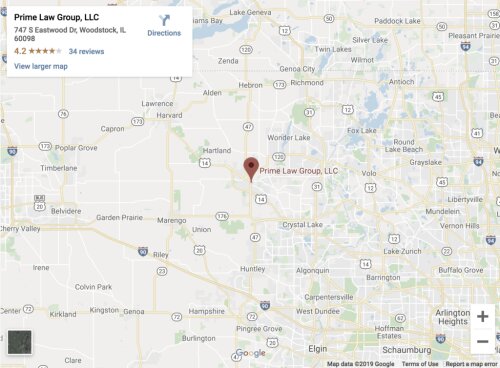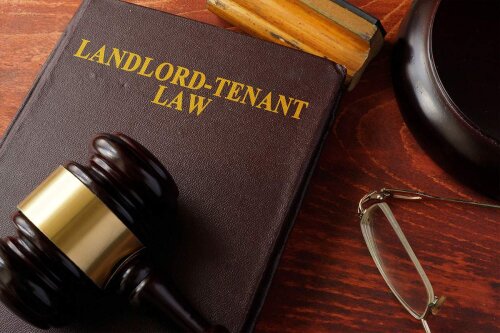Best Commercial Real Estate Lawyers in Alabama
Share your needs with us, get contacted by law firms.
Free. Takes 2 min.
Free Guide to Hiring a Real Estate Lawyer
Or refine your search by selecting a city:
List of the best lawyers in Alabama, United States
About Commercial Real Estate Law in Alabama, United States
Commercial real estate law in Alabama governs the purchase, sale, leasing, development, and use of properties intended for business purposes. These properties can include office buildings, shopping centers, warehouses, retail spaces, hotels, and industrial sites. Alabama’s commercial real estate market is influenced by both state statutes and local regulations that address contracts, land use, zoning, environmental concerns, financing, and property management. Understanding these laws is critical for anyone involved in commercial real estate transactions, as they ensure compliance and help prevent future disputes.
Why You May Need a Lawyer
Commercial real estate transactions are often complex, expensive, and involve multiple stakeholders. Consulting a lawyer offers the benefit of expert advice and protection from costly mistakes. Some common scenarios where legal assistance is crucial include:
- Reviewing or drafting purchase and sale agreements
- Negotiating and preparing commercial leases
- Assisting with due diligence and title searches
- Resolving disputes between landlords and tenants
- Handling zoning, land use, and permitting issues
- Navigating financing and mortgage agreements
- Representing clients in litigation or mediation
- Facilitating property development and construction projects
By involving a lawyer early in the process, individuals and businesses can avoid misunderstandings, comply with Alabama law, and protect their investments.
Local Laws Overview
Alabama has specific laws and regulations that impact commercial real estate transactions. Key aspects include:
- Contracts: Real estate contracts in Alabama must be in writing to be enforceable and should clearly outline terms, contingencies, and obligations of all parties.
- Disclosure Requirements: Sellers may have limited disclosure obligations compared to residential properties, but material defects must be honestly disclosed.
- Lease Laws: Commercial leases are highly negotiable in Alabama and are governed primarily by the terms set forth in the lease agreement. There are fewer statutory protections for commercial tenants than for residential tenants.
- Zoning Laws: Local city and county zoning ordinances control what types of commercial activity are allowed in specific areas. Rezoning or variance applications can be complex and often require legal guidance.
- Property Taxes: Commercial real estate is subject to property taxes, with assessments based on fair market value. Understanding assessment and appeal processes is important for property owners.
- Environmental Regulations: State and federal laws regulate issues such as hazardous waste, wetlands, and other environmental concerns, which may affect commercial property development and usage.
- Foreclosure and Remedies: Alabama uses non-judicial foreclosure for most commercial transactions, but notice and procedure requirements must be followed closely.
Frequently Asked Questions
What is considered commercial real estate in Alabama?
Commercial real estate in Alabama includes properties used for business or investment purposes, such as offices, retail stores, industrial sites, hotels, and rental apartment complexes with five or more units.
Does Alabama require an attorney for commercial real estate closings?
There is no strict legal requirement for an attorney to be present at commercial real estate closings in Alabama, but most parties involve lawyers to review documents, ensure accuracy, and reduce risks.
What should I know before signing a commercial lease?
Commercial leases in Alabama are typically lengthy and detailed. Before signing, understand your rights and obligations, rent terms, renewal options, maintenance responsibilities, and options for terminating the lease early.
What types of due diligence are essential in a commercial real estate purchase?
Due diligence involves reviewing title records, zoning compliance, environmental reports, building inspections, survey boundaries, and current leases or tenant agreements.
How are property taxes assessed for commercial properties?
Property taxes are assessed based on the fair market value of the property. Assessments can be appealed if the owner believes they are inaccurate.
Can I convert a residential property to commercial use in Alabama?
Yes, but you must ensure the property is properly zoned for commercial use. This may require applying for rezoning or obtaining a variance from the local zoning board.
What happens if there is a breach in a commercial real estate contract?
Remedies may include monetary damages, specific performance, or contract rescission. Legal representation can help enforce contractual rights and negotiate settlement if needed.
Are there specific environmental concerns for commercial properties?
Yes. Properties must comply with state and federal environmental regulations, particularly concerning hazardous materials, underground storage tanks, and wetlands protection.
How do I resolve a dispute with a commercial tenant or landlord?
Many disputes are addressed through negotiation or mediation first. If these fail, legal action or litigation in Alabama courts may be necessary. Consulting a lawyer is recommended.
What is a title search and why is it important?
A title search investigates a property's ownership history and uncovers any legal issues, such as liens or encumbrances, which could affect your rights as a buyer or investor.
Additional Resources
The following resources can be beneficial for those seeking information or assistance regarding commercial real estate law in Alabama:
- Alabama State Bar Association - Lawyer referral services and legal resources
- Alabama Real Estate Commission - Licensing, regulations, and consumer information
- Local city and county planning and zoning departments
- Alabama Center for Real Estate (ACRE) - Market trends and research
- Alabama Department of Environmental Management (ADEM) - Environmental regulations and permits
Next Steps
If you are considering a commercial real estate transaction or are facing a legal issue related to commercial property in Alabama, consider taking the following steps:
- Gather all relevant documents, including contracts, leases, and correspondence
- Contact a qualified Alabama commercial real estate attorney experienced in the relevant type of transaction or dispute
- Prepare a list of questions or concerns to discuss with your lawyer
- Review local ordinances and state laws applicable to your situation
- Consult recommended resources or governmental agencies for guidance or additional information
Working with a professional ensures your interests are protected and that you comply with Alabama’s legal requirements for commercial real estate.
Lawzana helps you find the best lawyers and law firms in Alabama through a curated and pre-screened list of qualified legal professionals. Our platform offers rankings and detailed profiles of attorneys and law firms, allowing you to compare based on practice areas, including Commercial Real Estate, experience, and client feedback.
Each profile includes a description of the firm's areas of practice, client reviews, team members and partners, year of establishment, spoken languages, office locations, contact information, social media presence, and any published articles or resources. Most firms on our platform speak English and are experienced in both local and international legal matters.
Get a quote from top-rated law firms in Alabama, United States — quickly, securely, and without unnecessary hassle.
Disclaimer:
The information provided on this page is for general informational purposes only and does not constitute legal advice. While we strive to ensure the accuracy and relevance of the content, legal information may change over time, and interpretations of the law can vary. You should always consult with a qualified legal professional for advice specific to your situation.
We disclaim all liability for actions taken or not taken based on the content of this page. If you believe any information is incorrect or outdated, please contact us, and we will review and update it where appropriate.
Browse commercial real estate law firms by city in Alabama
Refine your search by selecting a city.














